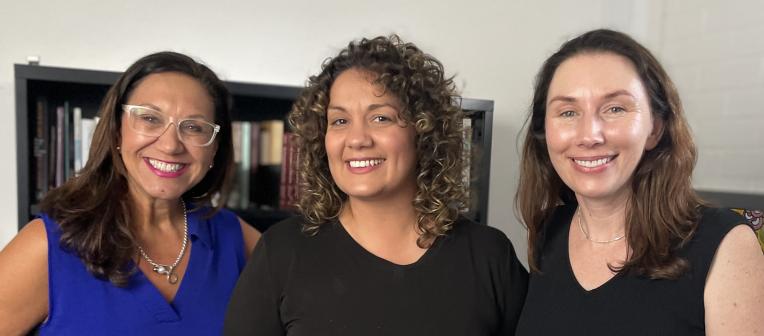
Music and Language Pilot Project
About the Project
According to AIATSIS, Australia has over 200 distinct Indigenous languages and over 800 dialects. But due to the impact of colonisation and subsequent assimilation policies there is an ongoing crisis of Indigenous language endangerment. Music plays an important role in enhancing language preservation and there are a growing number of people who are working to sustain Indigenous languages through music. There is an urgent need, however, to develop further online resources that engage with language through music that can be used by others to undertake language preservation and revitalisation activities.
Funded by the Centre for Digital Societies and Cultures at The University of Queensland, this pilot project undertook five case studies with individual Aboriginal and/or Torres Strait Islander people to document the ways they are using music to preserve and sustain languages in their professional and personal lives.
Collaborators: A/Prof Katelyn Barney, Prof Anita Heiss and Deline Briscoe
Research Assistant: Nisa Richy
Interviewees: Deline Briscoe, Jamaine Wilesmith, Ruth Ghee, Robert McLennan, and Letetia Harris
Filming and Editing: Dylan Kai Harris
Objectives and Outcomes
Through digital storytelling, we document artists' experiences, challenges, and cultural responsibilities in preserving and revitalising Aboriginal and Torres Strait Islander languages through music.
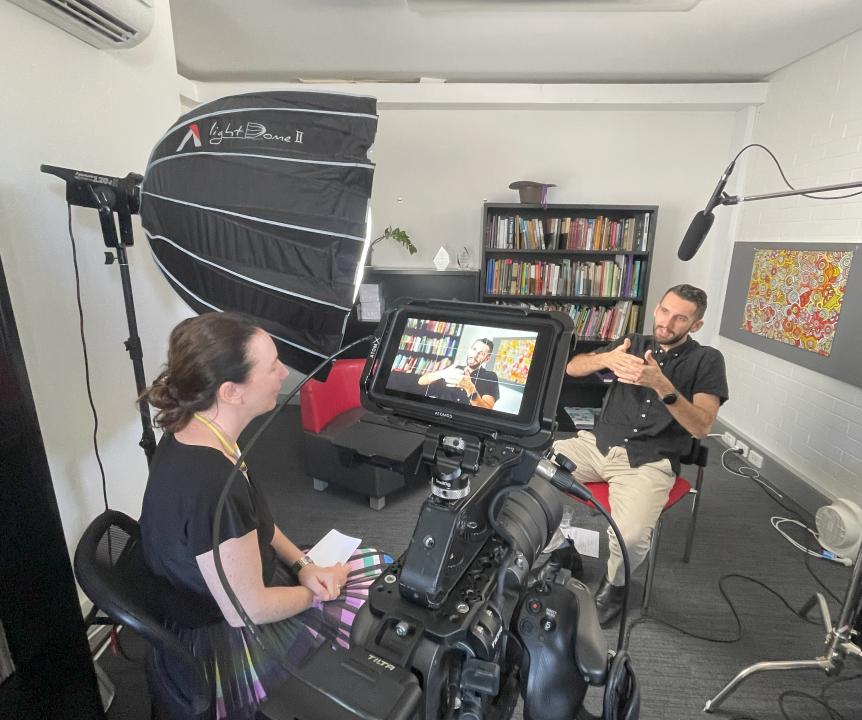
Showcase Music’s Role
Highlight how music supports language maintenance and revitalisation.
Create Digital Case Studies
Develop online video resources featuring Indigenous artists.
Discuss Challenges & Protocols
Explore cultural considerations and the impact of digital spaces.
Explore Diverse Perspectives
Insights from artists across different cultural backgrounds.
Develop New Resources
Guidance on language reclamation through music.
Gain Respect for ICIP Rights
Collaboration with UQ Legal to ensure Indigenous Cultural and Intellectual Property (ICIP) protection.
Deline Briscoe
“The role of music in sustaining our languages and cultural practices is so important. It gives us a sense of connection. Also I think it’s that continuation of oral history that we've always done through dance, song, ceremony, lore.”
Robert McLellan
“I think in a revitalisation context the use of music and song is incredibly important.”
Letetia Harris
“I know of lots of Wiradjuri spaces and I know of my space that I use music to sustain language and cultural practices.”
Jamaine Wilesmith
“The role music plays in the learning and also the preservation of my language is one on a deep level and personal. It’s very close to me.”
Ruth Ghee
“I think music and song is the best way to learn language. It’s the easiest way to learn language and to just to hear the sounds of that language.”
Project Gallery
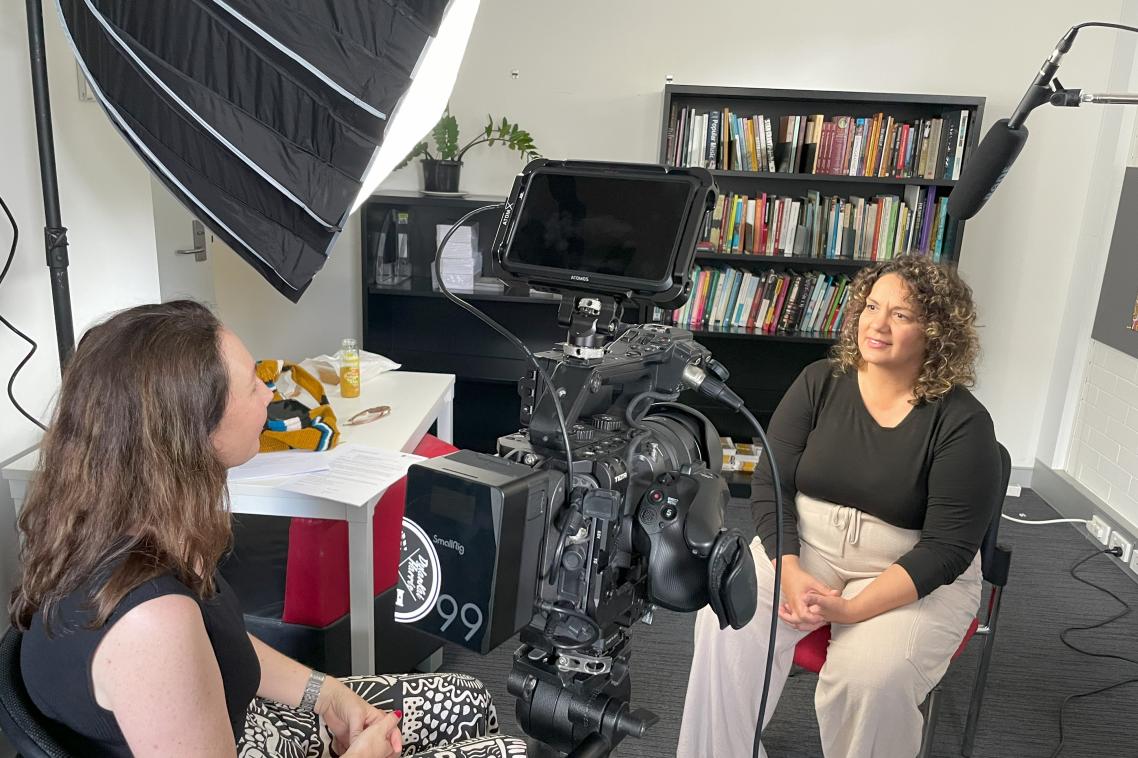
Interview with Associate Professor Katelyn Barney and Deline Briscoe
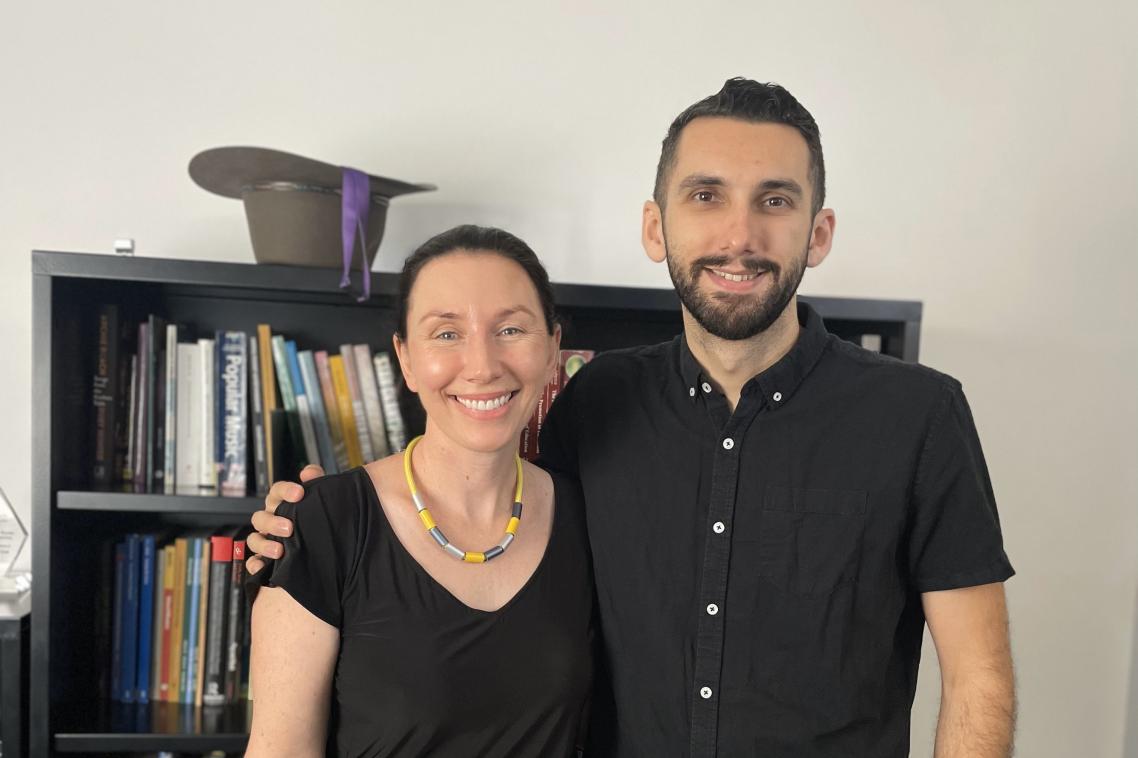
Associate Professor Katelyn Barney and Robert McLellan
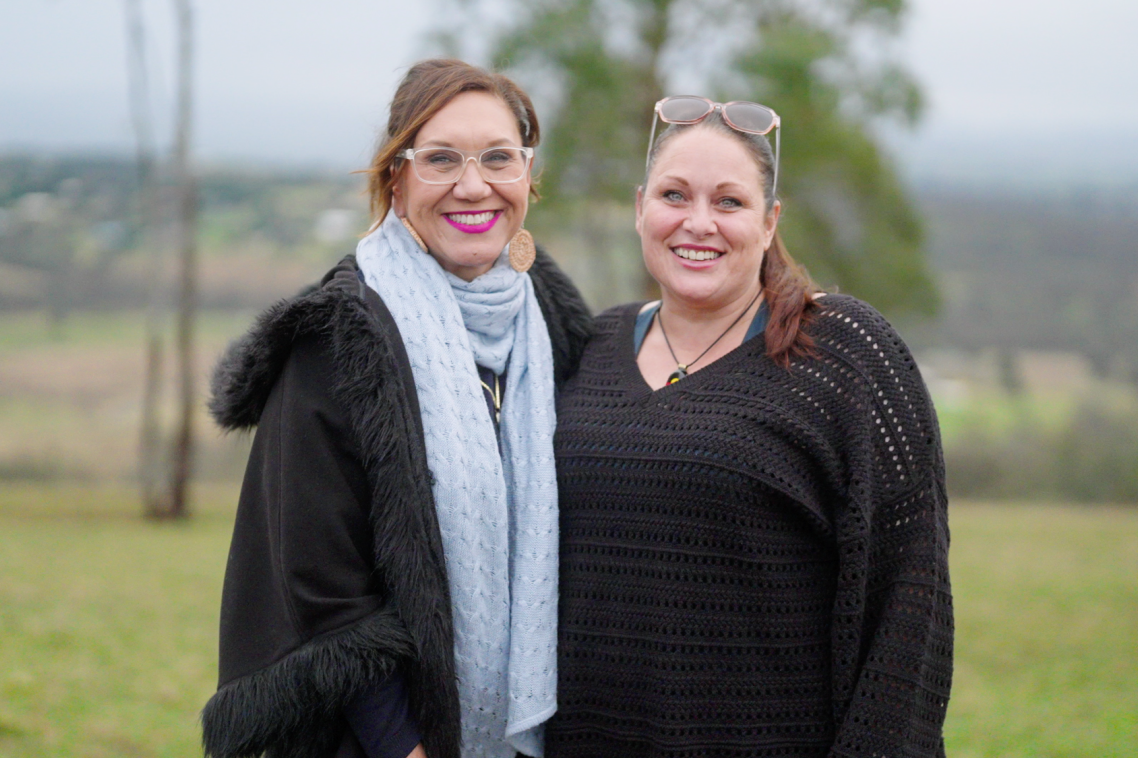
Professor Anita Heiss and Letetia Harris
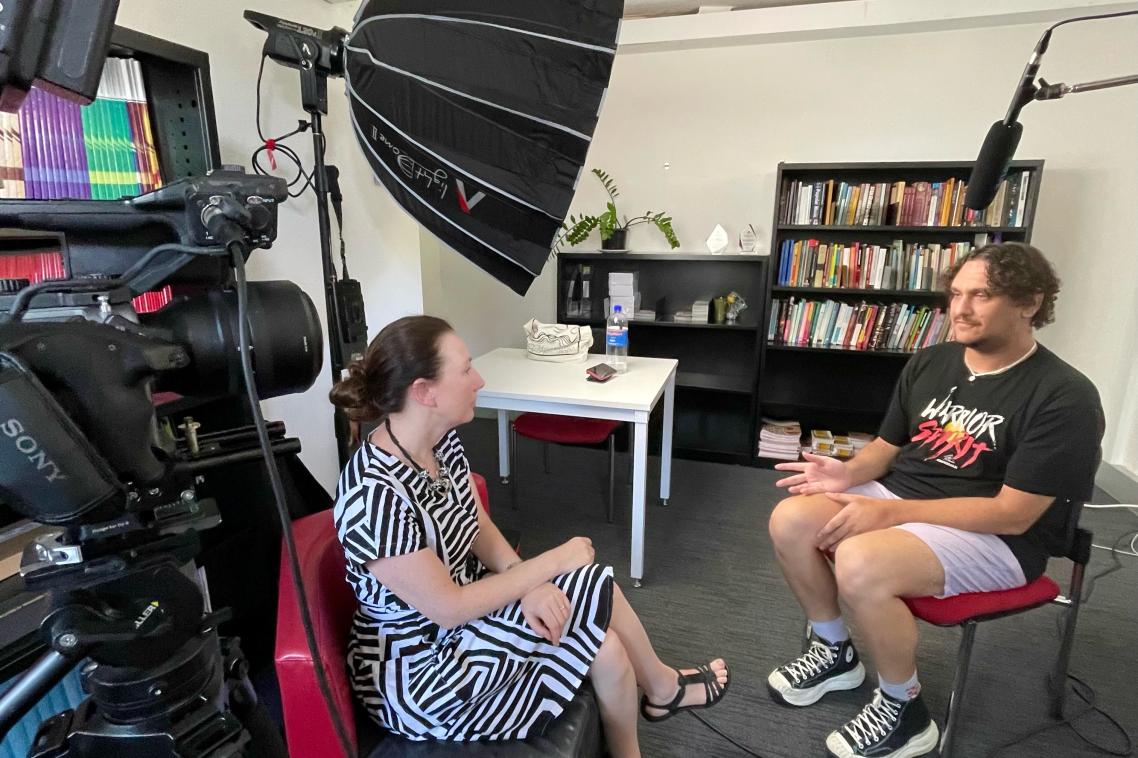
Interview with Associate Professor Katelyn Barney and Jamaine Wilesmith
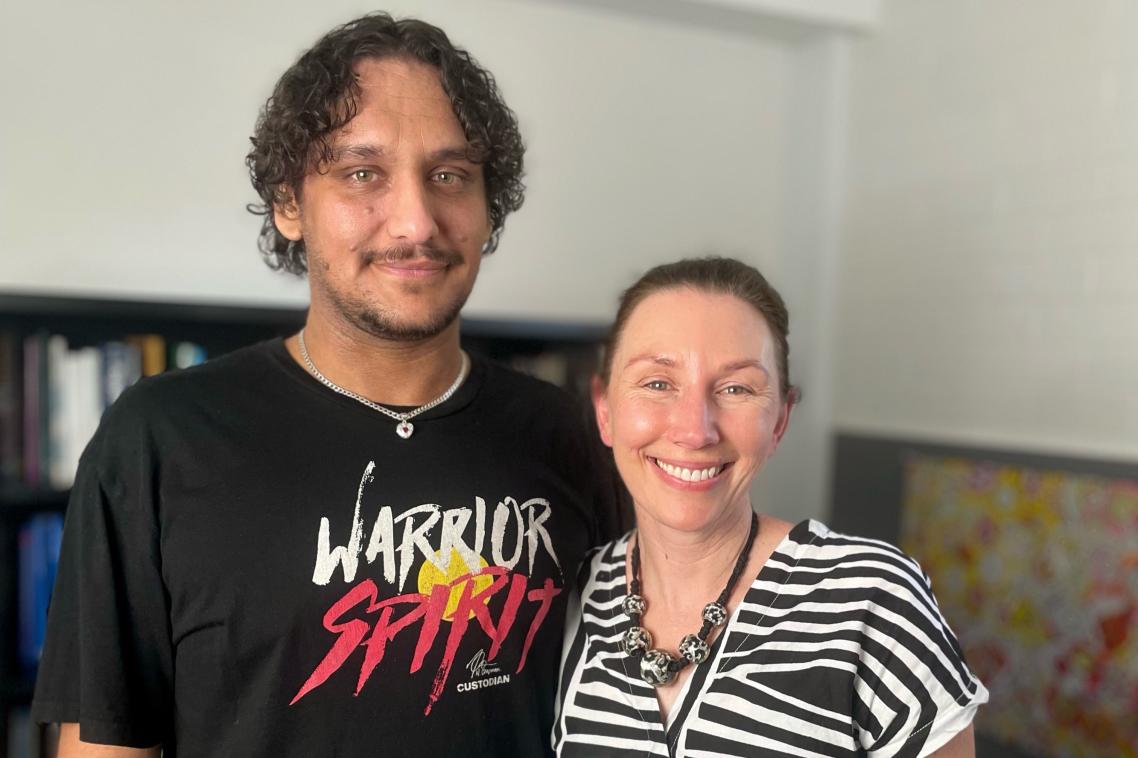
Jamaine Wilesmith and Associate Professor Katelyn Barney
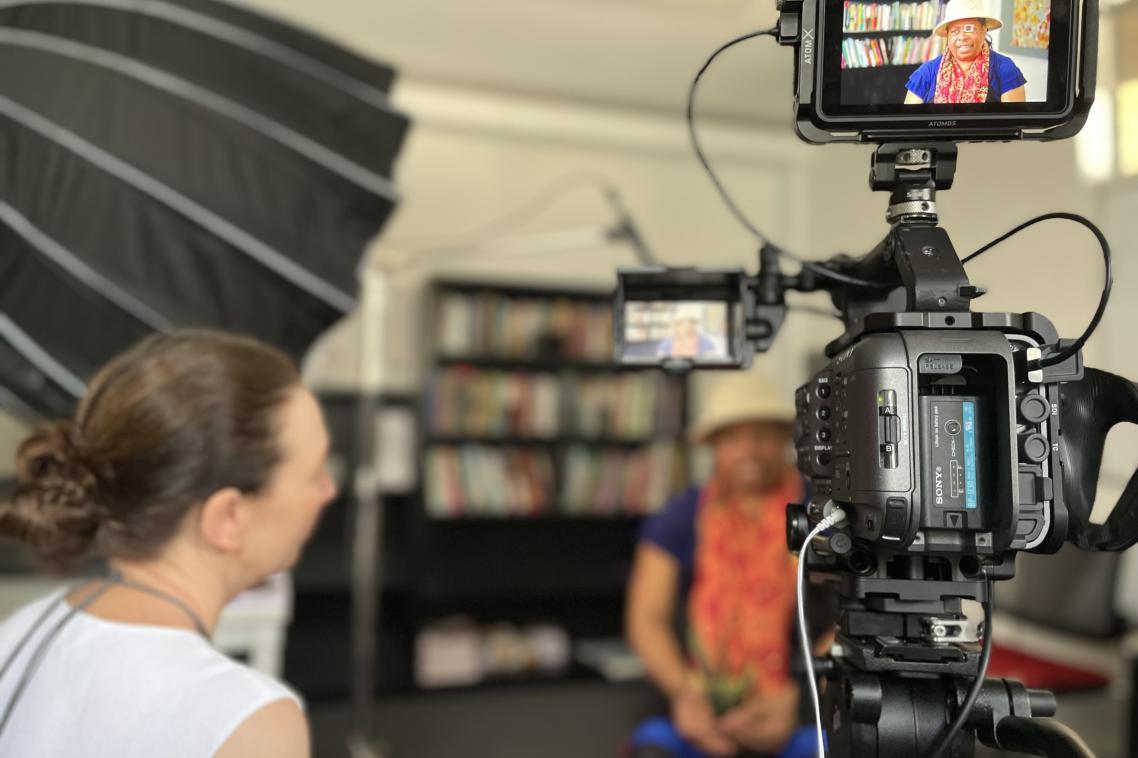
Interview with Associate Professor Katelyn Barney and Ruth Ghee
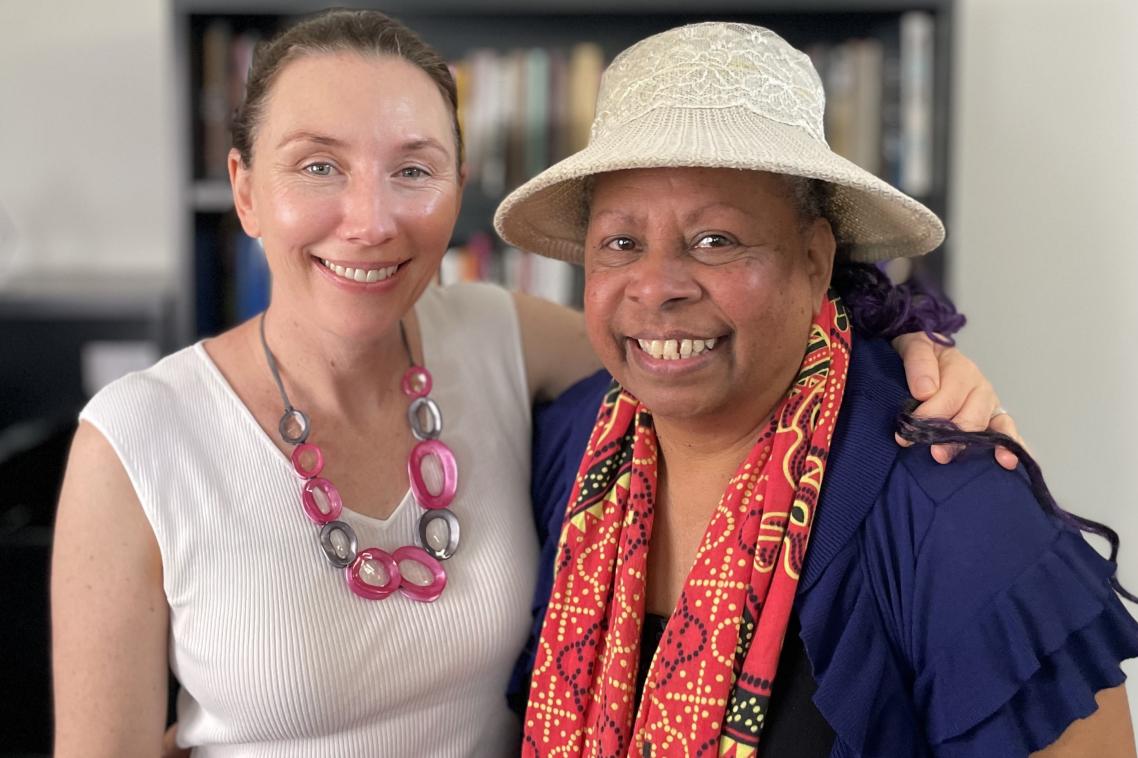
Associate Professor Katelyn Barney and Ruth Ghee






